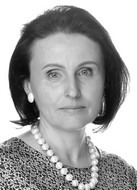‘Conscientious corporality’ didactic technology applied for physical education of children with health limitations
Фотографии:
ˑ:
N.G. Georgieva1
Dr.Biol., Professor Y.A. Bukov1
PhD, Associate Professor T.A. Zhmurova1
V.V. Chigidina1
PhD, Associate Professor Y.I. Shramko1
1V.I. Vernadsky Crimean Federal University, Simferopol
Owing to the steady increase in the number of children and adolescents attributed to a special health group, innovative approaches are to be introduced into the physical education process for effective preventive and corrective work.
The study analyzes the ‘Conscientious Corporality’ didactic technology designed on a differentiated basis i.e. customizable to the actual needs and capacities of children with health limitations. The creative adaptive physical education elements of the new didactic technology help the trainees realize their negative conditions (aggression, fears, anxiety etc.), analyze own movements and bodily capacities, develop sensor satisfactions and manage the energy costs. The technology was designed with application of the theoretical and practical provisions by M. Feldenkrais and Joseph Pilates. The physical education module of the new didactic technology includes two semesters with a special emphasis on the educational process goals including trainees’ mental condition, somatic health and physical fitness improvements. The new didactic technology was found beneficial for the mental and somatic health and physical progress of children attributed to a special health group.
Keywords: didactic technology, corporeality centered methods, special health groups, physical education.
References
- Andryushchenko L.B. Monitoring fizicheskogo razvitiya studencheskoy molodezhi volgogradskoy oblasti [Monitoring of physical development of students in Volgograd region]. Vestnik Volgogradskogo gosudarstvennogo meditsinskogo universiteta, 2005, no. 2, pp. 31-34.
- Bukov Ya.A., Georgieva N.G. Zdorovyesberegayuschie tehnologii i metody telesno-orientirovannoy terapii na urokakh po fizicheskomu vospitaniyu uchaschikhsya spetsialnoy meditsinskoy gruppy [Health promotion technologies and methods of bodily-oriented therapy at physical education lessons for special health group students. Uchenye zapiski un-ta im. P. F. Lesgafta, 2015, no. 6, pp. 31-36.
- Bukov Ya.A., Georgieva N.G. Metody telesno-orientirovannoy terapii v strukture uroka fizicheskoy kultury v SMG: metod. rekom. dlya prepod. fiz. Kultury v SMG [Methods of bodily-oriented therapy in structure of physical education lesson in SHG: method. rec. for physical education teachers in SHG]. Simferopol: KFU publ., 2016, 42 p.
- Evseev S.P., Komkov A.G., Shelkov O.M. Realizatsiya lichnostno orientirovannogo podkhoda v protsesse ispolzovaniya innovatsionnykh tekhnologiy fizicheskogo vospitaniya shkolnikov [Realization of personality oriented approach in the use of innovative technologies of physical education students]. Fizicheskaya kultura: vospitanie, obrazovanie, trenirovka, 2006, no. 2, pp. 24-26; [Electronic resource]. Available at: http://lib.sportedu.ru/press/fkvot/2006 N2 / p24-26,39-41.htm
- Kazantinova G.M., Andryushchenko L.B., Charova T.A. Zdorovy obraz zhizni v professionalnoy deyatelnosti spetsialista. Ucheb. posobie dlya studentov selskokhozyaystvennykh vysshikh uchebnykh zavedeniy, obuchayuschikhsya po distsipline ‘Fizicheskaya kultura’ [Healthy way of life in specialist professional work. Study guide for students of agricultural higher educational establishments majoring in Physical Education]. MA Russia, Department of Science and Technology Policy and Education, VSAA publ., Volgograd, 2009.
- Makunina O.A., Baranov A.A. Sostoyanie zdorovya detey v Rossiyskoy Federatsii [Russian children's health]. Sotsialnaya pediatriya. Nauchny tsentr zdorovya detey’ [Social pediatrics. Scientific Center for Children's Health]. RAMS publ., Moscow, 2013.



 Журнал "THEORY AND PRACTICE
Журнал "THEORY AND PRACTICE